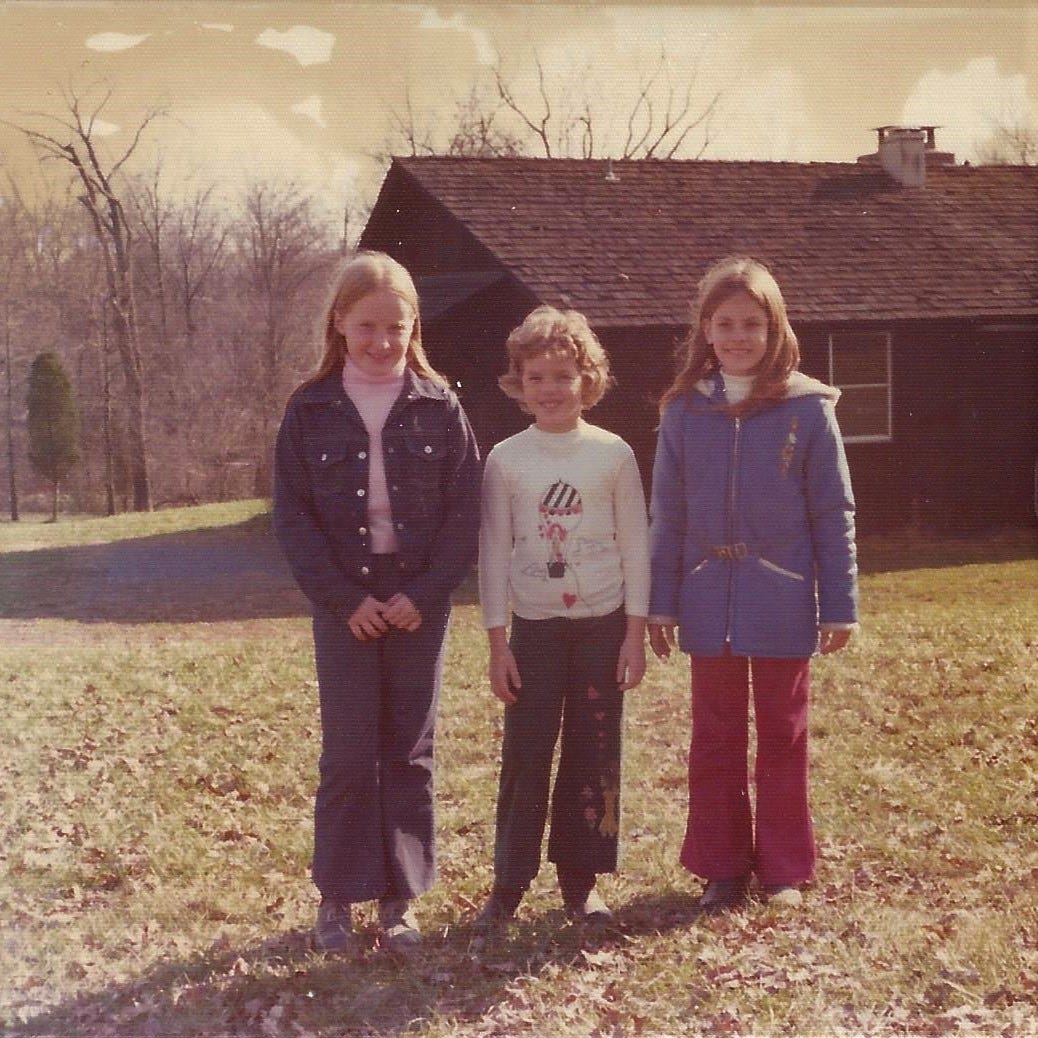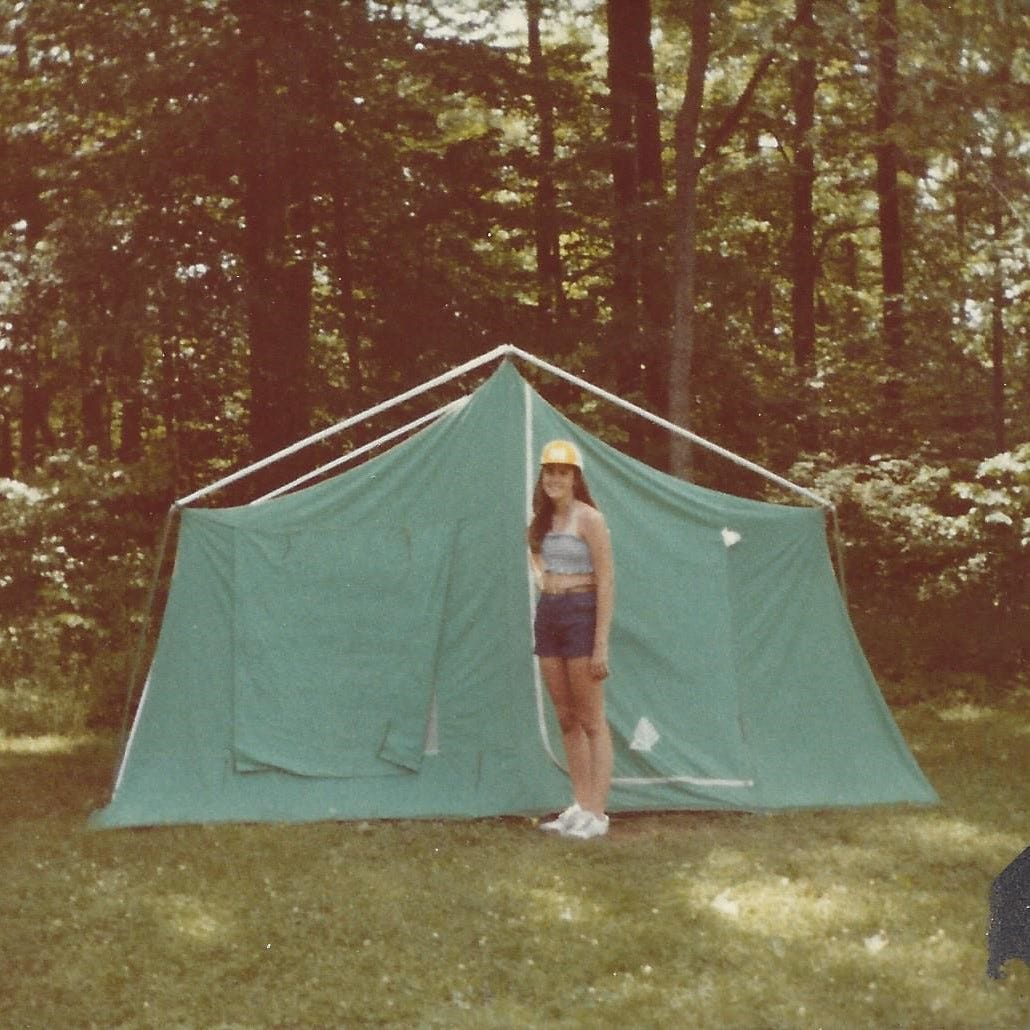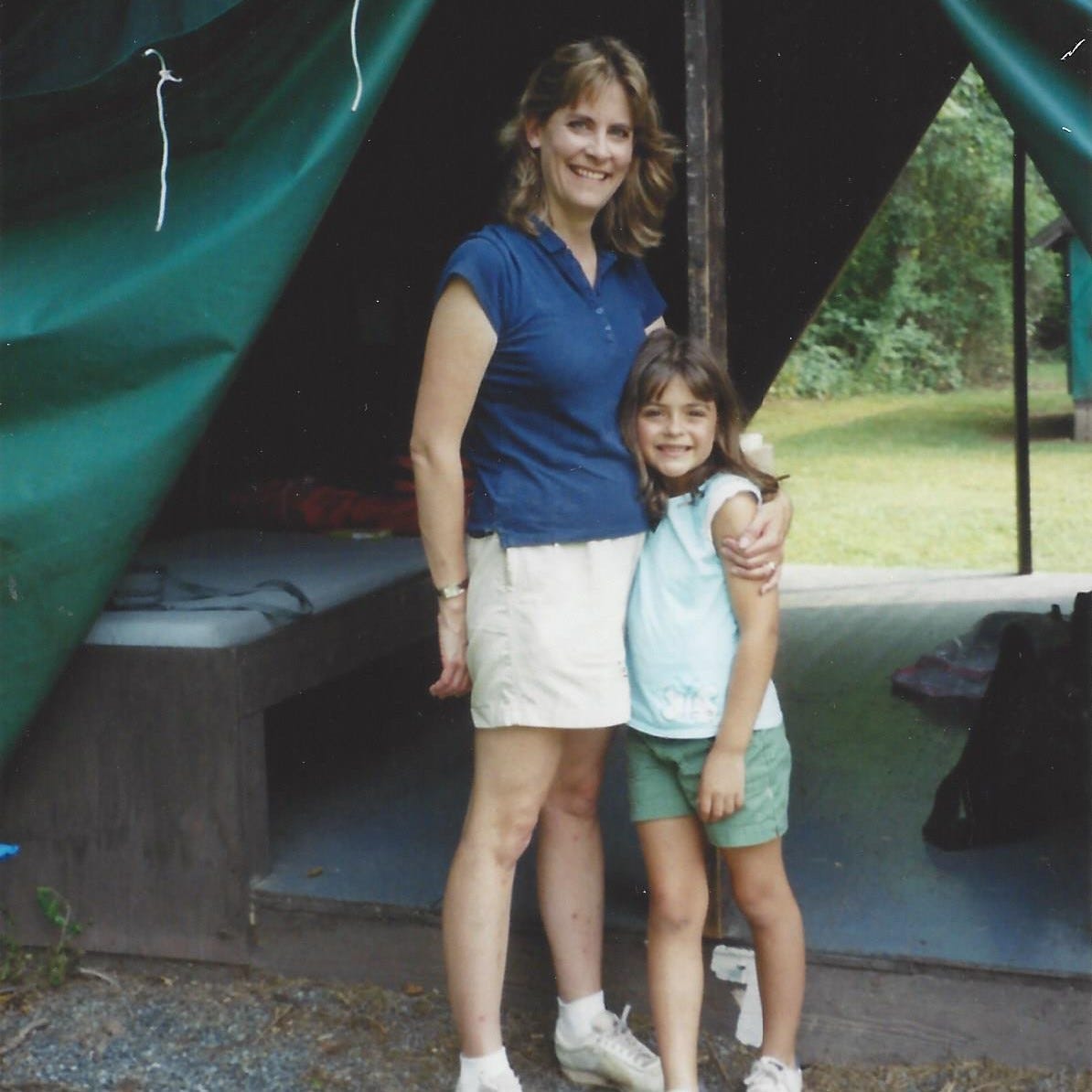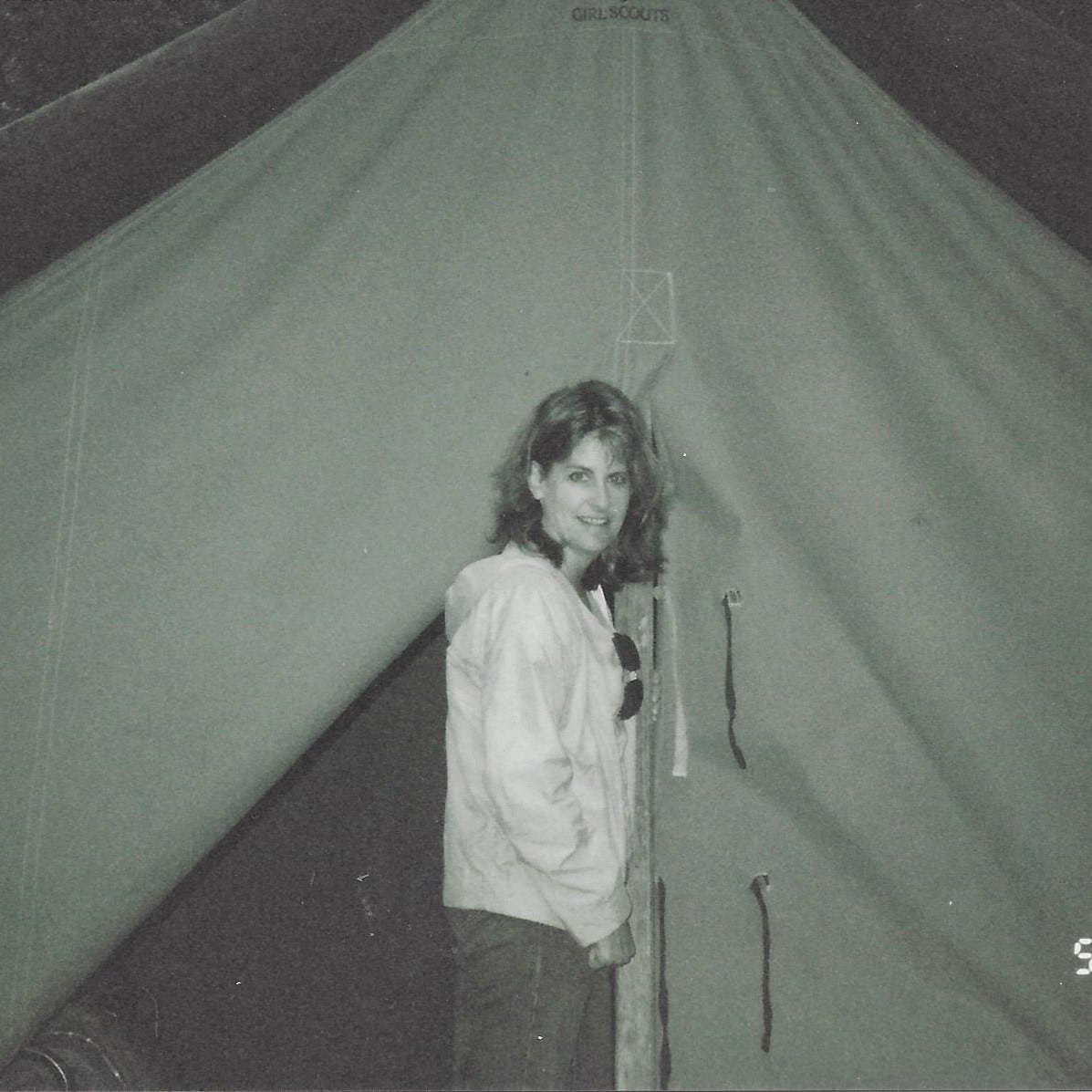Are you getting old when something that used to delight you doesn’t anymore?
What it means when your “oh yeah” turns into “oh no”
If you’re in your 20s, maybe you’re already noticing that some of the things you used to enjoy a few years ago aren’t as enticing as they used to be–maybe sleeping on the floor of your friend’s shore house doesn’t seem as worth it to enjoy a weekend at the beach. Or forking over big bucks for a concert festival and sleeping in a tent no longer feels like a no-brainer.
What gives? Do our tastes change that much as adults? When you don’t want to do things you used to find fun, does it mean you’re getting old?
Some photos I recently sifted through from my time as a Girl Scout may help answer that question (Happy National Girl Scouts Week BTW).
I have many fond memories from my time as a Girl Scout, especially of the camping trips. It’s funny even typing that sentence because once I hit my 20s, I never once had the urge to spend any time at a campground.
But look at how happy I am in the photo above (I’m the little girl on the right). I’m standing with my best friends at the time, Jackie and Mary Beth, outside our cabin at Camp Laughing Waters. We’re on our first camping trip ever, and I am full of glee.
What made that weekend the best ever? Since I don’t have sisters, spending 24 hours a day with other girls my age was fantastic. Plus we were away without our parents! In the country! We could stay up as late as we wanted to (or at least until the Girl Scout leaders put a stop to it)! We got to sleep in bunk beds! I slept in a sleeping bag for the first time!
Even hiking around the camp was cool. There was a swingy plank suspension bridge across a really wide creek. We also got to take turns crossing the creek on a raft—A RAFT! We went on a scavenger hunt! The latrines, which flushed when you sat on the toilet seat, were a little weird, but who cared?
Our two-day, two-night adventure was the bomb. I doubt any college student on spring break enjoyed themself more than I did that weekend. I couldn’t wait to go tent camping in the spring.
My camping adventures got taken up a notch in 7th grade when I joined a Cadette troop whose leader loved to camp. Our troop went on three or four camping trips a year.
We even spent a weekend backpacking on the Appalachian Trail (no photos from that weekend, though all you would have seen were trees anyway). Backpacking ended up being a once-in-a-lifetime experience for good reason–Saturday night, we slept outside in the middle of a rainstorm. The piece of plastic that was supposed to shield us from the elements didn’t do much. I felt so miserable that I fantasized about the authorities sending in a helicopter to rescue us so we wouldn’t have to hike back to the trailhead the next morning.
Though I never signed up for another backpacking trip, I happily continued to go on camping trips with my troop. Even after I’d graduated from the troop, I went along for a time as a junior assistant leader.
Then camping faded away. Once I went to college, none of my friends ever said, “Hey let’s go camping,” so I didn’t. I discovered many other activities to fill my leisure time, and I never had a desire to camp.
And then I got called back to the campground.
When my middle daughter was a Brownie, her troop was headed to Camp Laughing Waters for a Mother-Daughter camping trip. I couldn’t wait to return to the place where I’d spent the best weekend of my 4th-grade life.
But somehow camping seemed more dangerous than it used to be. Some of our fellow campers had to evacuate their tent because a bat had taken up residence. Other tents were off-limits because of the wasp nests inside. The camp pavilion didn’t feel like a very safe shelter when a thunderstorm struck (the fact that lightning had sparked a raging barn fire at our house the previous fall probably had me on edge).
Though my daughter seemed blissfully unaware of the hazards, camping wasn’t as jolly as I remembered.
A few years later when the leader of my oldest daughter’s troop asked me to help chaperone a camping trip, of course I said I’d go. I chalked my misgivings from the previous mother-daughter camping trip up to a little PTSD from our barn fire.
Though the leader was good company and the girls enjoyed themselves, camping wasn’t as fun as it once had been for me. Who wants to sleep in a tent if you have to leave the front and back flaps open in case some creature wanders into your domain overnight and needs to get out? And how safe was it to sleep in a tent without a lock or a door?
While the latrines were a step above the outhouses I had come across back in the day, I had a whole new appreciation for Thomas Crapper or whoever invented indoor plumbing.
I concluded that, while I would always be thankful for my Girl Scout experiences, camping’s moment had passed for me, and I didn’t want to return to camp ever again.
So, did that mean I was now officially old because I didn’t want to camp anymore?
I don’t think so. I believe my little Girl Scout camping show-and-tell reveals that it’s normal for what you enjoy to change over time.
That first camping trip in 4th grade was my first overnight trip without my parents. How could it not have been thrilling? Since I only had a brother four years younger than me, it was my first chance to spend hours of free time with other people my age who liked to do the same things I did.
And those Cadette camping trips were a chance for teenage me to spend a weekend away from my parents. It wasn’t so much that I loved hiking or campfires; it was a chance to spend time with people my age. Though I loved my Girl Scout experiences, my love affair was never with camping itself.
As I got older, my leisure options opened up. Once there were other ways to spend time with friends without giving up standard creature comforts, camping lost its allure.
I think there’s a tendency as a young adult to lament that it’s a sign you’re getting old when some of the things you used to do don’t appeal to you anymore.
But I don’t think these changes in preference mean you’re getting old; it just means your circumstances have changed, and your preferences have evolved. It’s silly to cling to old ways of life that you don’t enjoy in the same way anymore.
Sometimes we try things because there’s no other way to discover whether we like them. Later we may find other things that hold greater appeal. Or sometimes the things we enjoy only appeal to us during a particular season of our lives.
So if some of the ways you spend your free time or your weekends aren’t doing it for you anymore, go ahead and change it up without worrying that you’re getting old before your time.
Consider what element of the pastime you used to enjoy was the key to the enjoyment. Perhaps it wasn’t the venue, setting, or activity itself that created the joy.
To borrow a line from an old Girl Scout song, keep the old friends, but find the new thing that better fits your evolving tastes.
You’re not getting older; you’re just getting better at identifying how you want to spend your time–a life skill more likely to serve you than knowing how to build a campfire.
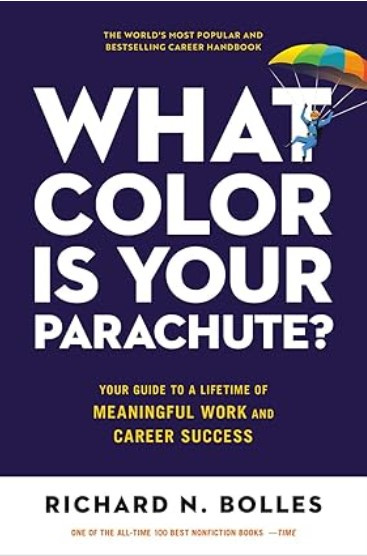
Author Richard Bolles says that you are not powerless during the job hunt, regardless of whether the job market is strong or weak. “You control a lot of this process. Knowing that the employer has the ability to say yes or no can make you feel powerless, but that’s all the more reason to take charge of your search.”
According to Bolles, you can at least double your chances of success in your job search by doing six things:
Mastering job-search skills
Improving the way you present yourself in interviews and elsewhere
Being more aware of and confident about your skills
Taking action
Setting goals
Getting help when needed
Bolles has numerous suggestions about how to prepare for a key element in any job search–the interview. Before any interview, he recommends preparing to answer five key questions.
Bolles says that in today’s world, the person who gets hired is not necessarily the one who can do that job best; rather, it’s the one who knows the most about how to get hired. What Color Is Your Parachute is like a SparkNotes of everything you need to know about getting hired.
Look for more about What Color Is Your Parachute? all this month.
In the olden days, moms used to clip newspaper articles for their kids if they thought it was something they needed to know. I’m watching for things you might have missed that may be helpful to you.
This week’s clips:
How are you really doing? Evaluate your overall well-being by taking this quiz. The New York Times talked to experts in clinical psychology, positive psychology, flourishing, resilience, and burnout who explained why these questions matter. It will get you thinking about adjustments that might help.
In a conversation with Maria Shriver, Heather Cox Richardson, an expert on American political and economic history, talked about the power each of us has to make real change in our democracy: “The way you change politics is to change the way people think. And the way you change the way people think is that you make sure your voice is heard. And you find your friends and you speak together. And you speak up not only by voting, but by talking to people, by writing letters to the editor, by calling your congress member, by making sure that what you care about is on the table. And politicians do respond to that, 100%.” Watch the video or read the transcript here.
An oldie but goodie from the popular website Wait But Why: How to Pick Your Life Partner. Part 1 examines the forces making it hard to find a partner. Part 2 explores what makes a happy life partnership. The stick figure drawings really add a little something-something.




